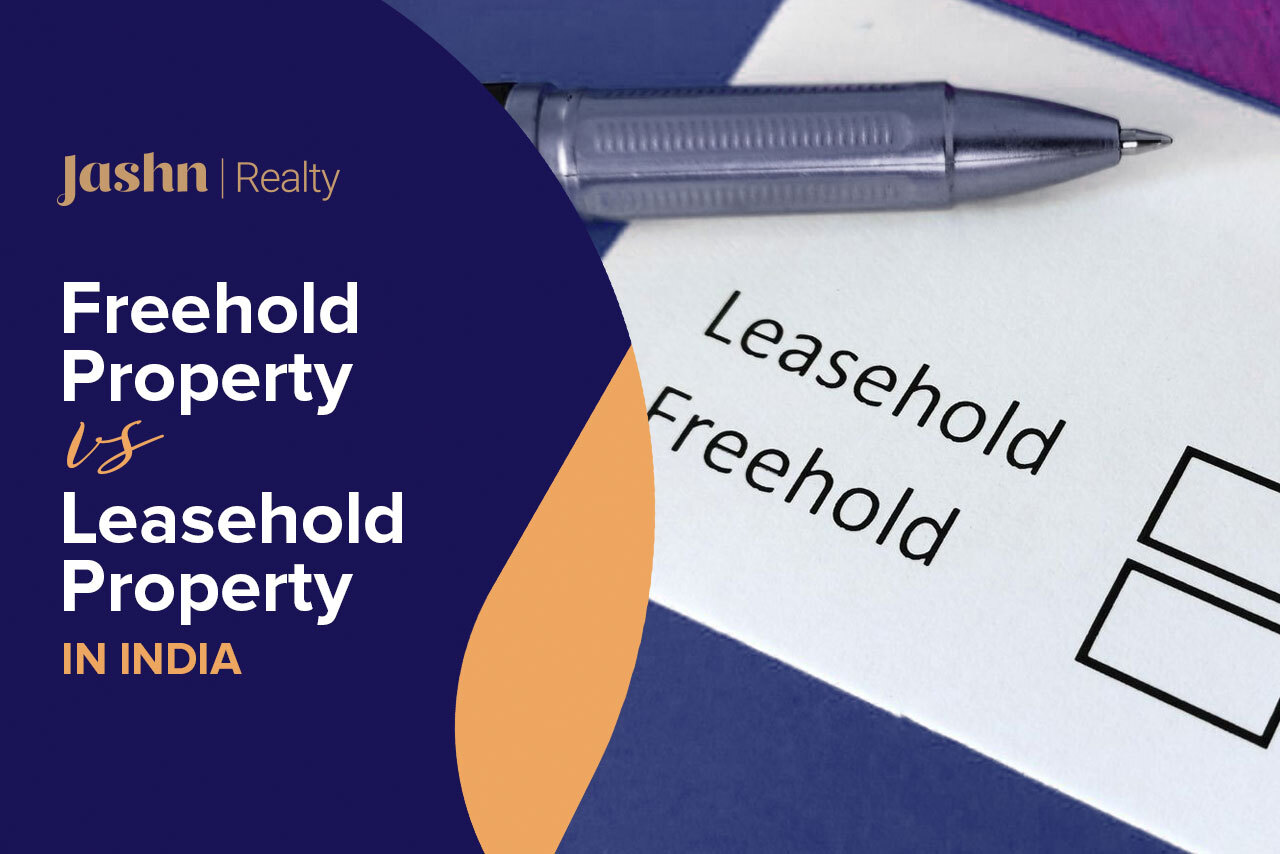There are many standard terms used frequently in Indian real estate. Freehold and leasehold properties are two terms that pop up in every real estate investor’s mind. They often wonder about the difference between freehold and leasehold properties.
If you’re also wondering about the same, no worries. This blog will reveal all the aspects of these two terms used in Indian real estate. So, let’s check them out.
Differences between freehold and leasehold properties
First of all let’s understand these two terms and then look at their differences on by one.
What is meant by freehold property?
Freehold property means the individual or entity holds permanent and unrestricted ownership of the land and its building. There is no time limit or restrictions of any kind on ownership. Suppose you get freehold residential plots in Sushant Golf City Lucknow. You’ll be the sole owner of such plots and you reserve the rights to use it the way you like.
Benefits of freehold property
Here are the benefits of freehold property.
- Absolute ownership: As the name implies, freehold property remains absolute. It is free from hold, which gives flexibility to the owner to use it for any purpose and in any way.
- Rights: Owners get complete rights to change, sell, or rent it as desired.
- No time-bound: With freehold property, the owner doesn’t get any time limit. Once you purchase such a property, you become the sole owner of it.
- Easy housing finance: You can get easy home loans for your freehold property from any bank.
- No usage restrictions: Since you hold the complete rights, you can make any constructional or structural changes at your discretion.
- Easy to transfer: If you wish to transfer your property to someone, the process will be easier.
- Simple and easy paperwork: If you wish to sell your freehold property, then the paperwork will be simple and hassle-free.
What is meant by leasehold property?
As the name implies, a leasehold property is the one which a renter leases from the owner for a specific period. Such a property comes with ownership and transfer restrictions.
Benefits of leasehold property
Here are the leasehold property benefits.
- Affordable: It becomes more affordable since you only rent out the building and not the land. Per the agreements and terms, purchasing a leasehold property saves you money.
- Alternative finance available: With the right agreement, you can purchase the land and building at a lower rate. However, this process requires professional help and consultation, ensuring you are guided and reassured throughout.
- Limited ownership: With specific terms and conditions, you can have only a limited period of ownership.
- Bank finance available: Banks offer finances on those properties that are leased for over 30 years.
- Usage limitations: Owners can impose specific restrictions for renters.
- Maintenance & damage costs: The damage and repair cost is borne by the lessee.
Which one to choose?
People often go with freehold properties as they come with complete ownership and control. However, it comes with higher investment burden. Commercial investors usually go with leasehold plots and flats due to lower upfront costs.
You can convert a leasehold property to a freehold by negotiating with the owner and initiating a sale deed procedure. You may also need to pay a conversion charge to change its status from leasehold to freehold.
The selection depends on your affordability and requirements.
Conclusion
Choosing between freehold and leasehold properties seems confusing for investors. However, both terms have their own advantages. Freehold property is for those who want complete ownership, while leasehold properties are for those seeking an affordable alternative with simplified responsibilities. It depends upon your specific preferences which one you would choose.







